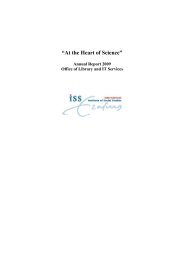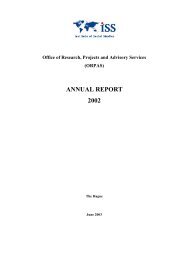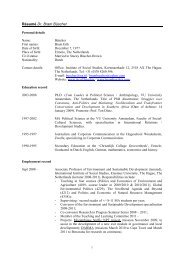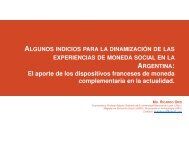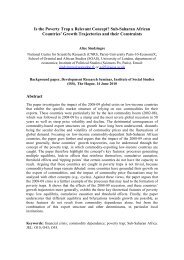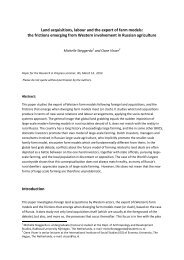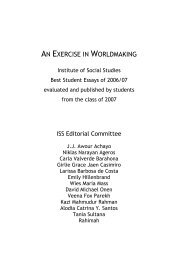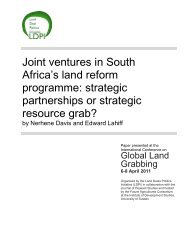AN EXERCISE IN WORLDMAKING 2009 - ISS
AN EXERCISE IN WORLDMAKING 2009 - ISS
AN EXERCISE IN WORLDMAKING 2009 - ISS
Create successful ePaper yourself
Turn your PDF publications into a flip-book with our unique Google optimized e-Paper software.
16 <strong>AN</strong>DREA NICOLE DYKSHOORN<br />
Several other key factors distinguish refugees from economic immigrants.<br />
First, while immigrants have time to prepare for moving, refugees<br />
often leave abruptly, at times, without finishing personal business at<br />
home. Second, immigrants have a choice of where they will relocate,<br />
while refugees are forced to move, and often do not choose where they<br />
will end up. Third, while immigrants may experience a sense of loss after<br />
relocation, it is generally not combined with trauma, an element that can<br />
be found in the experience of refugees. Finally, while immigrant children<br />
face adjustments in their new schools, they typically do not have long<br />
periods of interrupted schooling. For refugee children, however, civil<br />
war and lengthy stays in refugee camps can prevent access to basic education,<br />
leaving them far behind peers of their age group in their new<br />
country (Manitoba Education, Citizenship and Youth, 2005).<br />
EDUCATION—<strong>AN</strong> ECONOMIC, POLITICAL, <strong>AN</strong>D SOCIAL PROCESS<br />
For children new to Canada, schools are an important space for integration<br />
into a new culture. Kapreilian-Churchill (1996) writes that “as a vital<br />
socialising agent, schools bear a great responsibility in helping immigrant<br />
and refugee children understand the new country and become a meaningful<br />
part of it” (358). This understanding of the education process reflects<br />
the view that formal schooling is not a narrative process or oneway<br />
transfer of knowledge from teachers to pupils. The end result of<br />
education involves more than economic outcomes. Rather, formal education<br />
is also a highly political process that forms, reflects, and reinforces<br />
societal attitudes and values (Freire, 1998:68). This is often known as the<br />
hidden curriculum, and its impact transcends economic concerns of employability,<br />
to affect human dignity, social legitimacy, and empowerment<br />
(Stromquist et al, 1998: 401).<br />
<strong>IN</strong>DICATION OF THE PROBLEM AREA<br />
Through multicultural education policies, many Canadian schools have<br />
made inroads in recognising and embracing students from diverse backgrounds.<br />
In fact, Canadian strategies for integration—conceptualised as a<br />
two-way process requiring adjustments from both sides (Atfield et al,<br />
2007: 12)—are often cited in literature and modeled in other countries.<br />
Yet while all students who are new to the Canadian school system face<br />
adjustments, research indicates that refugee populations—and those



